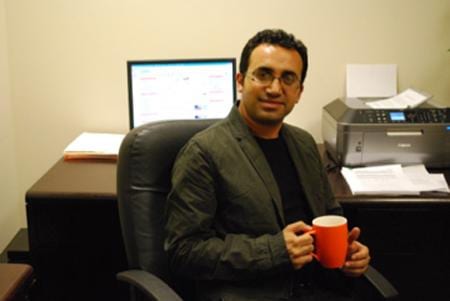Arsham Parsi wants people to know that “Iranian queers do exist.” That’s why the executive director of the Iranian Railroad for Queer Refugees (IRQR) has registered his advocacy group to march in the Toronto Pride parade. Parsi says it will be the first time an official Iranian contingent has marched in Toronto Pride.
On May 22, at the Sixth International Meeting Against Homophobia, Parsi decided to ask Iranian gay asylum seekers if they’d like to take to Toronto’s streets with him to build awareness of their struggles. About 35 people agreed.
“I thought it was a significant change among communities that didn’t have this,” he says. Previously, Parsi has participated in Pride events with a few other Iranians, but, he says, he always felt alone.
“My friends in Toronto were so happy that this happened,” he says. “We decided to register for Toronto Pride as well, and they supported the idea.”
So, says Parsi, the IRQR held a series of community planning meetings, attended by about 35 people who registered for the parade.
“We might not be as big as TD or other banks,” he says. “We are small… but we want our rights…. This march, for us, is not all about having fun. Pride has become so commercial right now.”
Parsi says he would like to see Pride in North America focus more on solidarity and activism and take a cue from the Pride marches occurring abroad. “Right now in Ankara… and Moscow, people are fighting for their lives. They take risks.”
Homosexuality remains illegal in Iran, punishable by flogging, imprisonment or death. In 2007, Iranian President Mahmoud Ahmadinejad, while on a visit to Columbia University, denied that there are gay people in Iran. And in 2005 and 2006, there were high-profile reports of executions of young men, allegedly for sodomy.
Parsi says that he would like to see Toronto’s Iranian queers come together but that there needs to be more acceptance from his fellow Iranians in Canada.
“Our most important challenge is not by white Canadians, because most of them are welcoming. They know Canada receives many immigrants… and they can contribute to this country,” says Parsi. “Our problem is by Iranian communities. Not all of them, but most Iranian people who live in Canada, they don’t know about queer rights and they don’t support it.”
It’s a sticking point for Parsi. “For God’s sake, you are here and you came to this country. We are here as well; why don’t you accept us?” he says. “These two [groups of] people are coming for the same reason: you had problems in Iran. Both of us are here and we… have to support each other.”


 Why you can trust Xtra
Why you can trust Xtra


